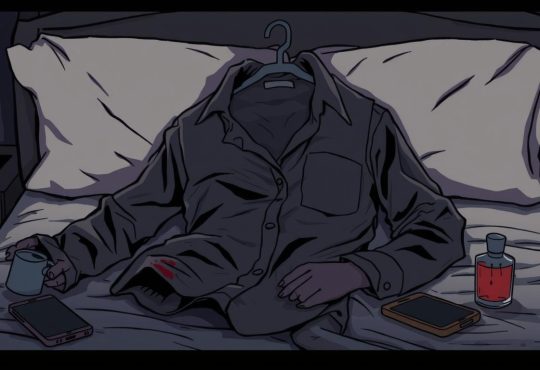
Have you ever wondered if a past relationship could reignite? It’s a question many of us ask ourselves, especially when emotions are still raw. The truth is, relationships are complex, and the answer isn’t always straightforward.
Attachment styles play a big role in how people navigate breakups. For example, avoidant individuals often cycle through relationships, seeking independence before feeling the pull of connection again. This can lead to moments of nostalgia, where a past partner becomes idealized as a “phantom ex.”
Rebound relationships also influence whether someone might return. Dating someone new can help a person realize what they truly miss about their previous partner. However, lasting reconciliation often requires personal growth and emotional maturity.
If you’re curious about the factors that might bring an ex back into your life, keep reading. We’ll break down the science and psychology behind relationship dynamics to help you understand what’s possible.
On this Page:
Understanding Rebound Relationships & Attachment Styles
Rebound relationships often spark curiosity about their role in post-breakup behavior. They’re not just distractions—they’re deeply tied to how we process emotions and attachment styles. Let’s explore why people enter these relationships and what they reveal about our emotional needs.
The Avoidant Attachment Factor
People with avoidant attachment styles value independence above all else. After a breakup, they may feel relief rather than distress, quickly moving on to someone new. This behavior isn’t about commitment—it’s about avoiding deeper emotional connections.
For avoidant individuals, short-term relationships provide a sense of freedom. They often romanticize the honeymoon phase but pull away once things get serious. This cycle can lead them to idealize past partners, creating a “phantom ex” effect.
The Honeymoon & Rebound Dynamic
Rebound relationships thrive on the excitement of new beginnings. The honeymoon phase offers a temporary escape from the pain of a breakup. However, this high is often short-lived, masking underlying feelings of loneliness.
Over time, the allure fades, and the avoidant person may start comparing their new partner to their ex. This comparison can reignite interest in their past relationship, especially if they haven’t fully processed their emotions.
Understanding these dynamics requires time and self-growth. Rebounds aren’t just about moving on—they’re about learning what we truly want in a relationship.
Do Exes Ever Come Back After Dating Someone Else
The idea of reconnecting with a past partner can stir up a mix of emotions. It’s natural to wonder if a former relationship could reignite, especially when feelings are still fresh. Let’s explore the factors that might lead someone to return after being with someone new.
The Phantom Ex Phenomenon
After a breakup, it’s common for people to idealize their past partner. This is known as the “phantom ex” phenomenon. Nostalgia often paints the relationship in a positive light, making it seem better than it was. This idealization can happen even if the relationship had its challenges.
When someone starts dating a new person, they might compare their current partner to their ex. If the new relationship doesn’t meet their expectations, they may start to miss the qualities they once had. This can lead to thoughts of reconnecting with their former partner.
Timing, Moving On, and Emotional Distance
Timing plays a crucial role in whether an ex might return. After a breakup, both people need time to process their emotions and gain clarity. Emotional distance allows them to reflect on the relationship without the intensity of immediate feelings.
Moving on is a personal journey. Some people take months or even years to fully heal. During this time, they might date others, but those relationships often serve as a way to explore what they truly want. If they realize their past partner was a better fit, they might consider getting back together.
However, reconciliation isn’t just about timing—it’s about growth. Both individuals need to address the issues that led to the breakup. Without this self-awareness, the same problems could resurface, making it difficult to build a healthy relationship.
Strategies for Handling Your Ex’s New Relationship
Seeing your ex with someone new can feel like a punch to the gut, but there are ways to handle it gracefully. It’s natural to feel a mix of emotions, from jealousy to sadness. However, focusing on your own growth and well-being can help you navigate this challenging time.
One effective approach is the “being there” method. This strategy involves maintaining a secure, non-intrusive presence in your ex’s life. It’s about showing support without overstepping boundaries. By being a consistent and positive influence, you can subtly reignite their interest over time.
The Being There Method Explained
The “being there” method works by creating a sense of nostalgia and security. Avoidant individuals, in particular, may start to reconsider their past relationship when they feel a steady, supportive presence. This doesn’t mean interfering with their new relationship—it’s about being a reliable person in their life.
Here’s how to apply this method effectively:
– Set Boundaries: Respect their new relationship and avoid unnecessary contact.
– Focus on Self-Growth: Use this time to build your confidence and pursue your interests.
– Be Patient: Healing takes time, and rushing the process can backfire.
– Stay Authentic: Be genuine in your interactions, not manipulative.
Remember, the goal isn’t to force a reunion but to create an environment where they might naturally reconsider their feelings. This approach balances caring for their autonomy with respecting your own needs.
By focusing on your own life and maintaining a positive presence, you can handle your ex’s new relationship with dignity and grace. It’s a challenging journey, but one that can lead to personal growth and clarity.
Navigating emotions after a breakup can feel overwhelming, but it’s a chance to grow. Seeing a former partner with someone new often triggers feelings of jealousy and insecurity. These emotions are natural, but how we handle them can shape our healing journey.
Managing Jealousy and Insecurity
Jealousy can stem from comparing yourself to the new person in your ex’s life. It’s important to remember that everyone’s journey is different. Focus on your own progress rather than dwelling on their new relationship.
Self-care plays a crucial role in managing these emotions. Activities like journaling, exercising, or spending time with loved ones can help calm your mind. Research shows that journaling, in particular, can improve emotional well-being and clarity.
Embracing Personal Growth & Setting Boundaries
Breakups often serve as a turning point for personal growth. Use this time to reconnect with your passions and set clear boundaries. Boundaries help protect your emotional space and ensure you’re not pulled back into unhealthy patterns.
Engaging in hobbies or learning new skills can boost your confidence. Studies indicate that focusing on self-improvement leads to healthier relationships in the future. Remember, healing takes time, but every step forward counts.
By prioritizing your well-being and embracing growth, you can turn a challenging situation into an opportunity for renewal. The journey may be tough, but it’s a powerful way to rediscover your self-worth and build a brighter future.
Conclusion
Understanding relationship dynamics can offer clarity during uncertain times. Attachment styles, rebound dynamics, and the “phantom ex” phenomenon all play a role in whether a person might reconnect with a past partner. However, the focus should always be on personal growth and self-awareness.
Using the “being there” method can be effective, but it must be applied ethically. Respect boundaries and prioritize your own well-being. Healing takes time, and every person’s journey is unique.
Embrace this period as an opportunity for renewal. Reflect on what you’ve learned and how it can shape your future relationships. Moving forward with clarity and confidence is the most important thing.










